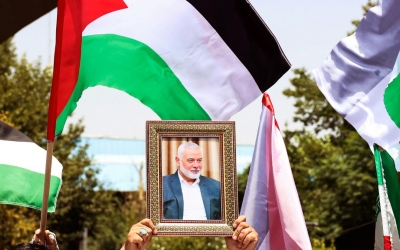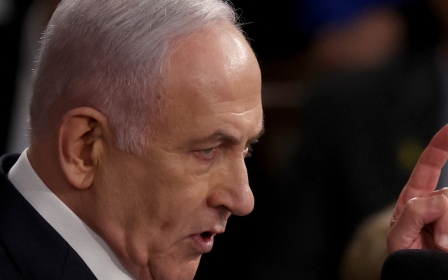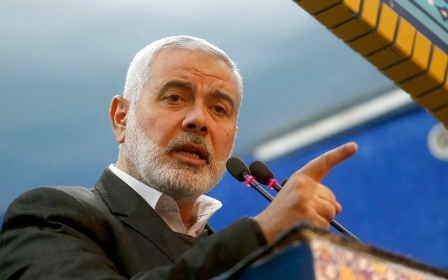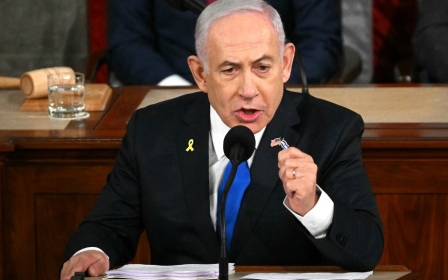Ismail Haniyeh killing: Netanyahu wants a war without end. This could give it to him
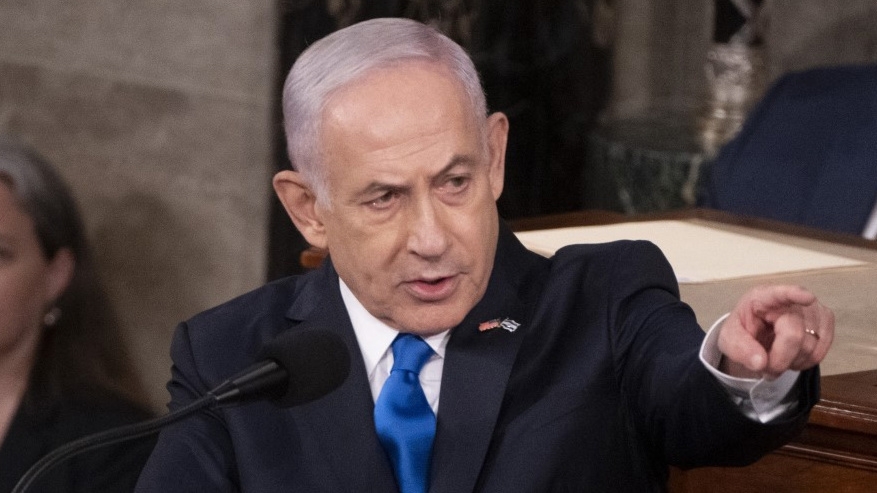
Last week's assassinations by Israel of Hezbollah's top military commander, Fuad Shukr, and Hamas political leader Ismail Haniyeh have brought the region to the precipice of all-out war.
Actually, the region is already at war. But so far it has been a controlled, carefully calibrated conflict - tit-for-tat, cat-and-mouse.
Israel has now torn that unstable status quo asunder. In the process, it has destroyed the 75-year-old rules-based order, the laws of war and international humanitarian law. Israel has defied the International Criminal Court and the International Court of Justice.
They might as well not exist.
These institutions were founded to prevent a repetition of the Nazi Holocaust. Instead, they have failed to prevent the genocide in Gaza.
New MEE newsletter: Jerusalem Dispatch
Sign up to get the latest insights and analysis on Israel-Palestine, alongside Turkey Unpacked and other MEE newsletters
They have failed because those western nations which established these protocols have abandoned them.
The US, Germany, the UK and others have armed Israel. They have lent political and moral support to the killing. They have done virtually nothing to stop it. The collapse of this international order is their fault.
Escalation of conflict
The New York Times, citing unspecified "Middle Eastern” sources, recently reported that Haniyeh was killed by a bomb smuggled months earlier into the Tehran guesthouse where he was staying.
I believe it is likely that this information came via the Mossad, as one of the reporters on the piece, Ronen Bergman, is known to have close ties with the Israeli intelligence agency - and only the Mossad would have such granular, detailed knowledge of the assassination scheme.
Follow Middle East Eye's live coverage of the Israel-Palestine war
The NYT does not say how the device purportedly entered the guest house, nor how it was placed in the room. If correct, the type of access this operation demanded seems to indicate that the Mossad had a highly placed and trusted mole in Iran's Islamic Revolutionary Guard Corps (IRGC) apparatus.
IRGC officials have vehemently denied the Times' account. They claim that an Israeli missile or drone was used.
They also raise the possibility that Israel was able to pinpoint Haniyeh's location by installing spyware on his mobile phone, which offered GPS data enabling the attack. A senior Hamas official present in the building also refuted the Times' account.
This Israeli assassination was directed at its chief regional adversary, Iran. It may also have been intended to undermine the political standing of its newly inaugurated reformist president, Masoud Pezeshkian.
Israel prefers hardline leadership, as its interests dictate regional instability and the escalation of conflict.
The killing is also an affront to the Biden administration's attempts to negotiate a Gaza ceasefire. For months, Israeli Prime Minister Benjamin Netanyahu has been sabotaging repeated proposals put forward by Qatari mediators and US officials. He did so because he needs the war to retain power.
A former US intelligence officer who resigned in protest over US policy towards Gaza says Israel is seeking a war against Hezbollah for "political purposes". This too would advance the prime minister's political interests.
Killing Haniyeh kills the ceasefire talks. Hamas may never return to the table. This is precisely what Netanyahu wants - a war without end.
Consummate timing
The Biden administration has embarrassed itself in the aftermath of the killing, claiming it was neither involved in, nor even aware of, the assassination.
Secretary of State Antony Blinken later offered a bromide which refused to acknowledge the disastrous impact Haniyeh's murder would have on prospects of a ceasefire.
“It’s urgent that all parties make the right choices in the days ahead, because those choices are the difference between staying on this path of violence, of insecurity, of suffering, or moving to something… much better for all parties concerned," Blinken said.
"A ceasefire is… in the interests of Israelis; it’s in the interests of Palestinians. It’s in the interests of the region. So as long as everyone is focused on what their core interests actually are… we will reach a deal.”
Clearly, Netanyahu doesn't agree with this assessment of Israel's interests.
Netanyahu timed the assassination with consummate precision: just after his grand address to the joint session of US Congress, where he sang his own and Israel's praises.
He also exploited political turmoil in Washington, where a weak US leader has recently been forced to drop out of the presidential race.
The Israeli premier banked on the administration being unable or unwilling to mount opposition to, or criticise, the deed (which was the case). Democratic presidential candidate Kamala Harris has no policy-making authority, even if she wished to set out a different approach.
The Israeli premier has given the Democrats a black eye, despite their robust support for Israel's attacks on Gaza and Lebanon.
Insult to national honour
Iran's Grand Ayatollah Khamenei convened an emergency national security meeting within five hours of the killing. He ordered Iranian retaliation, although it's unclear what that entails.
Clearly, Tehran intends to land a powerful blow to avenge this insult to its national honour. That could entail Iran's closest regional ally, Hezbollah, striking Israel as well. Once this happens, Israel can be expected to launch its own retaliatory response.
Israel has sought a war with Hezbollah since 7 October 2023. In fact, its defence minister, Yoav Gallant, urged a pre-emptive strike against the Lebanese militia before attacking Hamas. But this plan was abandoned in the face of US opposition.
He did so because Hezbollah is a far more powerful adversary than Hamas. It can rain tens of thousands of advanced missiles down on Israel's major cities, including Tel Aviv (where the Israeli military's headquarters are located) and Haifa.
These attacks and counter-attacks could lead to an all-out regional war. If Israel launched direct air attacks on Iranian soil, Iran would likely take this as a casus belli. Then we would face a conflict over which no one would have control. The physical damage and death toll would be enormous.
Nor would it be confined to Israel and Iran. All of the latter’s allies in Syria, Lebanon, Iraq and Yemen would be drawn in too.
On the other side, the US promises to become a direct combatant in the first Middle East regional conflict since the 1973 Arab-Israeli war, with Axios reporting that Blinken held a conference call on 4 August with G7 foreign ministers, in which he told them to expect an Iranian-Hezbollah attack in the next 24 hours.
Biden has assured Netanyahu of military support against such an attack and promised to increase the US military presence. The US defence secretary, Lloyd Austin, expanded on the naval and air force resources to be sent to the region: “The US is sending a carrier strike group, a fighter squadron and additional warships to the Middle East as the region braces for an Iranian retaliation," noted a CNN report.
The American administration's policy flies in the face of US public opinion, which opposes Biden’s and Israel’s approaches to the conflict.
Americans don’t want to be dragged into yet another Middle East war - one the president is promoting, knowingly or unknowingly.
The views expressed in this article belong to the author and do not necessarily reflect the editorial policy of Middle East Eye.
Middle East Eye delivers independent and unrivalled coverage and analysis of the Middle East, North Africa and beyond. To learn more about republishing this content and the associated fees, please fill out this form. More about MEE can be found here.



